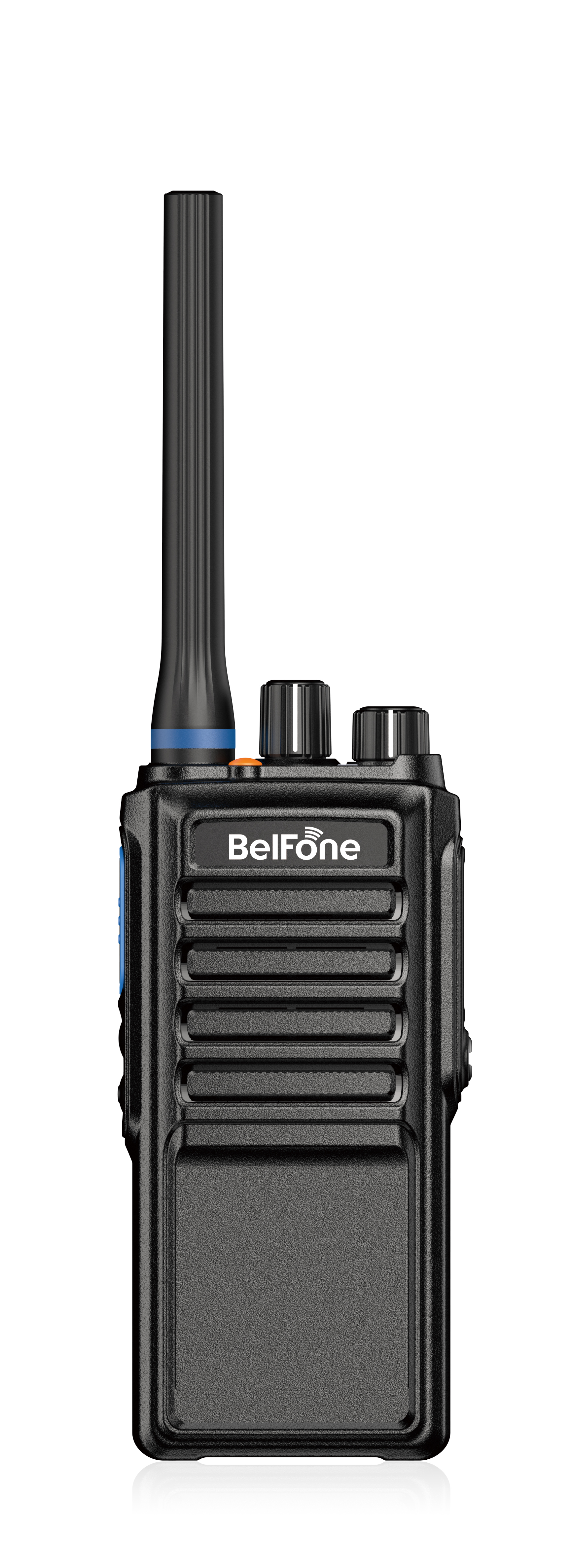How to improve sound quality in noisy environment?
In noisy places such as construction sites,
factory workshops, and large outdoor events, if the signal reception is not good,
communication will definitely go wrong. Don't worry, today the editor will
teach you some practical tricks to greatly improve the reception effect of your two-way radio.
Smart settings of walkie talkie functions
(I) Squelch level
The squelch function is to automatically
filter out background noise. There is usually a squelch knob on the walkie talkie,
or the squelch level can be set in the menu. When the level is raised, the
noise is gone, but when the signal is weak, the useful sound may also
disappear. So you have to adjust it slowly to find the balance point that can
suppress the noise and receive the signal. For example, in a factory workshop,
if the machine sound is particularly loud, the squelch level should be
appropriately raised; if it is a little quiet outdoors, the level should be
lowered.
(II) Use the noise reduction function cleverly
Now many walkie talkies have noise reduction
functions. Some rely on algorithms to identify which are noises and which are human
voices, and then remove the noise. Others have audio preprocessing functions,
such as gain adjustment, which can amplify the sound; the equalizer can adjust
the high and low frequency of the sound to make the sound clearer; the noise
reduction filter specifically filters the noise. BelFone BP620 digital radio is
equipped with a high-performance speaker with AI noise reduction algorithm,
which can effectively filter background noise and eliminate howling, accurately
extract human voices, and ensure that the sound can still be
accurately captured in various noisy areas, achieving clear and loud call
effects.

Advanced technology and equipment to help
(I) Dual-microphone
The two way radio with dual-microphone can
greatly enhance performance. One microphone is responsible for collecting the
sound of your speech, and the other is dedicated to collecting the surrounding
noise. The radio uses an algorithm to compare the signals received by the two
microphones, which can remove the noise, eliminate echoes, automatically adjust
the sound volume, and even determine which direction the sound is coming from.
This kind of walkie-talkie is particularly effective in noisy places, such as
construction sites, where there are roaring machines all around. It allows the other
party to hear what you say clearly.
(II) Advanced AI noise reduction with headphone
Some walkie-talkies can be connected to active
noise reduction headphones. The principle of this kind of headphones is to generate
a sound wave that is opposite to the surrounding noise. When the two sound
waves collide, they cancel each other out, and the noise is naturally reduced.
Wear it and listen to the sound in the walkie-talkie again. There will be less
noise interference and you can hear it clearly. At large outdoor events, there
are many people around and it is noisy. Wearing AI noise reduction headsets will
make it much easier to communicate with teammates.
(III) Usage method
First, Correct posture is very important. When using a walkie-talkie, you have to pay attention to your posture. Put your mouth close to the microphone and speak in the right direction, so that what you say can be clearly received by the walkie-talkie. The louder the sound, the less the impact of the surrounding noise. And when holding the walkie-talkie, keep your hands steady and don't shake it, otherwise it will affect the reception effect. For example, in a noisy logistics warehouse, if you are moving things and using a walkie-talkie at the same time, you have to hold the walkie-talkie steady and speak close to your mouth.
Second, choose a good position before talking. In a messy environment, find a relatively quiet place to make a call. For example, outdoors, if the wind is particularly strong, find a place that is sheltered from the wind, or use a windshield to block the wind noise. Indoors, if the machine next to you is very loud, move away a little before talking. For example, when there are promotional activities in a shopping mall, there are constant sounds of music and crowds around, so you can go to the corner of the mall, which is relatively quiet, and then use the walkie-talkie to communicate with colleagues about work.
Third, regular maintenance. Pay more attention to the microphone and speaker of the walkie-talkie. Check if there is any damage or if it is blocked by dust or debris. If you find any problems, repair it or replace it with a new one. In addition, the battery power must be sufficient. If the power is insufficient, the performance of the walkie-talkie will be affected, and the radio effect will also deteriorate. So before each use, check the battery and charge it when it is necessary. As long as these are done, the walkie-talkie can maintain good reception even in a noisy environment, and communication will be smooth.















